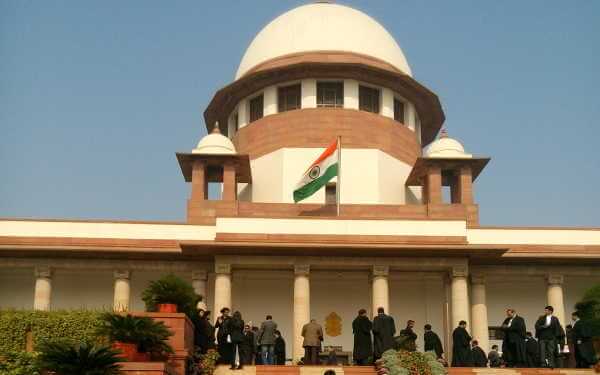The Supreme Court bench observed that innocents cannot be terrorised using the provisions of SC/ST Act.
A day after refusing the urgent hearing in the matter of SC/ST Act order, the Supreme Court denied putting a stay on its verdict. Making scathing remarks on the Dalit agitation during Bharat Bandh on Monday that rocked the country, the Supreme Court said that it is not going by “any agitation”.
On March 20, The Supreme Court in its order had cancelled the automatic arrest provision in the SC/ST Act which led to the demand for the review of the order. The Modi government under the mounting pressure from its own MPs and Ministers filed a review petition in the Supreme Court on April 2.
Justice A.K. Goel and U.U. Lalit who were overhearing the case, however, said that the March 20 order is not meant to dilute any provisions given under the act. The bench asserted, “We are not diluting any provisions of the Act, we are only protecting the innocent… only reiterating the law of arrest.”
The bench further observed that innocents cannot be terrorised using the provisions of SC/ST Act. However, it also clarified that the previous order doesn’t mean that the court is “against the Act or the complainants”.
The centre had also proposed suspension of the Supreme Court order directing a police officer not below the rank of DSP to conduct the preliminary inquiry. Slamming the government, the Supreme Court bench asked centre, “Why does the government want people to be arrested without verification?” The bench highlighted that a citizen’s liberty cannot be taken away without a preliminary inquiry.
Making sharp remarks on the Bharat bandh agitation that turned violent, the Supreme Court said that the protestors may not have read the order. “They may have been misled by vested interests,” the bench said.
As an independent media platform, we do not take advertisements from governments and corporate houses. It is you, our readers, who have supported us on our journey to do honest and unbiased journalism. Please contribute, so that we can continue to do the same in future.

